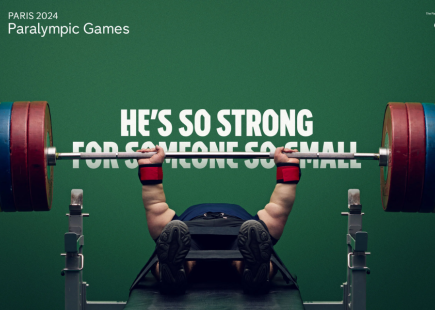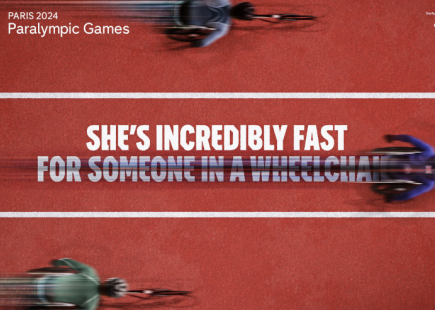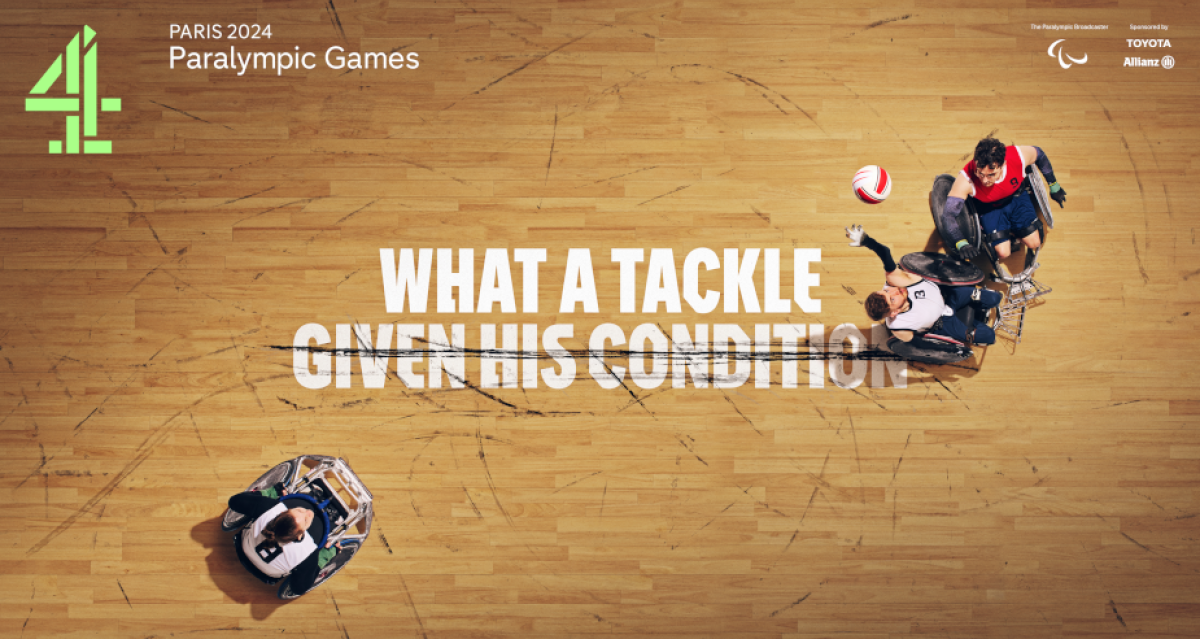Channel 4’s Paralympic campaign calls out patronising language

The messaging towards adaptive sports is an insight into the culture’s shifting attitudes, and Channel 4’s latest campaign highlights some of the clumsy, albeit often well-meaning, language.
The Paralympic Games movement is a testament to the evolving recognition and celebration of athletes with disabilities. The messaging and attitudes around adaptive sports, however, often fail to acknowledge competitors as athletes in their own right.
A new campaign from Channel 4, Overcoming What?, by its in-house agency 4Creative, shows Paralympians facing up to the challenges of forces such as gravity and friction, which are personified as universal foes, regardless of disability.
The two-minute advert also depicts some problematic, but well-meaning, comments often associated with adaptive sports, such as ‘he’s incredible for someone like that’ and ‘she’s doing so well, considering’.
One particularly effective addition to the campaign is a wall mural featuring an athlete cheekily erasing an ill-considered word to reframe adaptive sports in the spirit of parity.
Adaptive sports is on a winning streak, but what about the messaging?
The roots of the Paralympic Games trace back to the 1948 Stoke Mandeville Games in England. Held for World War II veterans with spinal cord injuries alongside the London Olympics, the competition was originally for UK athletes only, but gained international status in 1952 with the inclusion of Dutch athletes.
The first official Paralympic Games were held in Rome in 1960. Known as the 9th Annual International Stoke Mandeville Games, they featured 400 athletes from 23 countries competing in eight sports.
The messaging around the early Paralympics often framed Paralympians as recipients of charity and subjects of pity. The focus was on the therapeutic benefits of sport for people with disabilities rather than their athletic prowess.
That would change going into the 1980s, with a shift towards emphasising competition, skill, and dedication. The turn of the millennium, meanwhile, saw the rise of more inspirational and aspirational messaging, focusing on the achievements and resilience of Paralympians.
The "Spirit in Motion" motto adopted in 2004 reflects this change, while more recent messaging emphasises inclusivity, equality, and the rights of people with disabilities. This is in line with the International Paralympic Committee (IPC)’s campaigns for a more inclusive society, using the Games as a platform to challenge stereotypes and advocate for disability rights.
Economically, the message seems to have been a success, with a corresponding rise in corporate sponsorships and partnerships, with sponsorship revenue for the Tokyo 2020 Olympics and Paralympics (held in 2021) combined estimated to be over $3bn, the highest in Olympic history. Indeed, Channel 4’s coverage of the Tokyo 2020 Paralympic Games was viewed by more than 20 million people – a third of the UK population, with 4.1 million views on its TikTok Paralympics Hub.


Invictus spirit
2014 was another milestone for adaptive sports when The Invictus Games was founded by Prince Harry as an international adaptive multi-sport event for wounded, injured, and sick servicemen and women, both active duty and veterans.
The competition’s name was inspired by "Invictus", a short poem by the Victorian era British poet William Ernest Henley, a work that focuses on the strength that helped him through a childhood struggling with tuberculosis.
The messaging of the Invictus Games focuses on themes of resilience, recovery and the transformative power of sport, and the competition’s slogan ‘I am the master of my fate’ is taken directly from Henley’s poem.
Looking back at some key campaigns, "We’re The Superhumans" (2016 Rio Paralympics, UK), by Channel 4 won plaudits using a blend of athletic performance and everyday activities to challenge perceptions of disability. Its recent campaign, however, is more of a shift towards reaching parity with all athletes, rather than a focus on the extraordinary.
And the last major Olympics saw the launch of "One Year To Go" (2020 Tokyo Paralympics). This campaign avoided any marked statements of behavioural change but instead focused on the athletes' hard work in preparation for the Games.

If you enjoyed this article, you can subscribe for free to our weekly email alert and receive a regular curation of the best creative campaigns by creatives themselves.
Published on:


